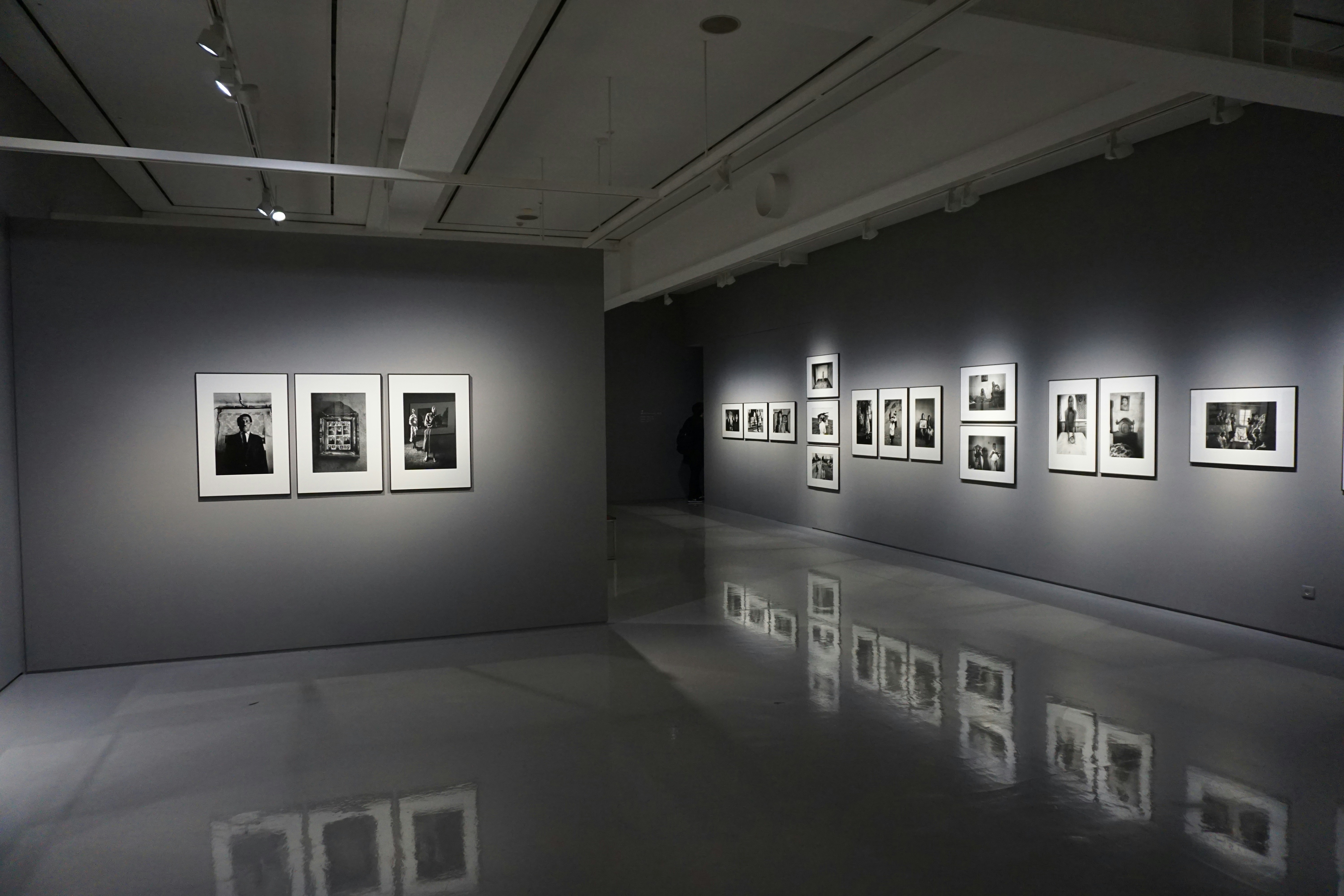Literary Classics Guide: Finding Personal Connection with Timeless Works
Malik Mohsin Saleem Khan
January 25, 2024 · 14 min read

Introduction
Literary classics have endured across generations not merely as academic requirements but as works that continue to illuminate the human experience in profound and timeless ways. These enduring texts offer far more than historical interest—they provide insights into our shared humanity, challenge our perspectives, and connect us with the greatest minds across centuries and cultures.
This comprehensive guide explores approaches to engaging with classic literature that go beyond dutiful reading to discover genuine personal connection and meaning. From understanding what makes a work "classic" to practical strategies for approaching challenging texts, discover how these literary touchstones can enrich your life regardless of your previous experience with them. Whether you're returning to classics after years away from formal education, exploring them for personal growth, or seeking to deepen your appreciation of works you've encountered before, this guide offers pathways to more rewarding engagement with literature's most enduring achievements.
Understanding Literary Classics: Definition, Value, and Evolution
The concept of "classic" literature has evolved significantly over time, reflecting changing cultural values, scholarly perspectives, and approaches to literary canon formation. Understanding this context helps approach these works with appropriate expectations while recognizing both their significance and limitations.
Defining literary classics involves multiple overlapping criteria rather than a single definitive standard. Traditional definitions emphasized endurance over time—works that continue finding readers across generations despite changing cultural contexts. Aesthetic excellence in elements like language, structure, and characterization represents another common criterion, though standards for this excellence vary across traditions and periods. Influential impact on subsequent literature and thought often distinguishes classics, with works that established new forms, techniques, or perspectives gaining canonical status. Cultural significance within particular traditions or historical moments also contributes to classic status, with works that captured pivotal societal shifts or embodied cultural values achieving lasting recognition. These multiple dimensions explain why the category of "classics" includes diverse works from epic poems to modernist novels, philosophical dialogues to personal essays.
The value of engaging with classic literature extends beyond academic requirement or cultural signaling to include multiple potential benefits. Classics often address fundamental human questions and experiences—love, mortality, power, identity, meaning—that remain relevant despite changing historical circumstances. They provide windows into different historical periods and cultural worldviews, expanding perspective beyond contemporary assumptions. Many classics achieved their status through innovative techniques or approaches that transformed literary possibilities, offering insights into creative development across time. The challenging nature of many classic texts—whether through complex language, unfamiliar references, or demanding structures—provides cognitive exercise that develops reading capacities applicable to many contexts. These potential benefits explain why classics continue finding readers outside academic requirements, though individual works offer different combinations of these values.
Canon formation and evolution reflects the dynamic rather than static nature of what constitutes "classic" literature. Traditional Western canons centered predominantly on works by white European men, reflecting both genuine literary achievements and problematic power structures that excluded other voices. Recent decades have seen significant canon expansion incorporating previously marginalized traditions including works by women, people of color, non-Western cultures, and other underrepresented perspectives. This evolution reflects growing recognition that literary excellence exists across diverse traditions rather than within narrow cultural boundaries. Contemporary approaches increasingly acknowledge both the value of established classics and the importance of expanding canonical understanding to include the full range of human literary achievement across cultures, time periods, and social positions.
The tension between universality and historical context represents a central consideration when approaching classic literature. While these works often address universal human experiences and questions, they simultaneously emerge from specific historical, cultural, and social contexts that shape their perspectives and assumptions. Effective engagement acknowledges both dimensions—recognizing timeless elements that continue resonating across centuries while understanding how particular historical circumstances influenced the work's creation and reception. This balanced approach avoids both dismissing classics as merely historical artifacts and uncritically accepting their perspectives as universal truths, instead engaging with their complexity as products of both particular moments and enduring human concerns.
Approaches to Reading Classic Literature
Engaging meaningfully with classic literature involves approaches that balance appreciation of their literary and historical significance with personal connection to their themes and insights. These strategies help bridge the gap between academic analysis and genuine enjoyment.
Contextual understanding significantly enhances appreciation of classic works by illuminating the historical, cultural, and literary environments that shaped their creation. Basic historical context—understanding the period's major events, social structures, and cultural assumptions—provides essential background for interpreting characters' actions, authorial choices, and thematic concerns. Literary context, including the traditions and conventions the work either followed or challenged, reveals innovative elements that might otherwise go unnoticed. Biographical context about the author's life experiences and perspectives, while requiring careful balance to avoid reductive biographical reading, can illuminate motivations and concerns underlying the work. This contextual knowledge need not be exhaustive—even basic information about when and where a work was written provides valuable interpretive framework without requiring scholarly expertise.
"In reading great literature I become a thousand men and yet remain myself... I see with a myriad of eyes, but it is still I who see." — C.S. Lewis
Personal connection with classic texts transforms them from historical artifacts to living works with contemporary relevance. Effective approaches include identifying universal human experiences within historically specific situations; recognizing emotional resonances across temporal and cultural differences; connecting thematic concerns with contemporary issues and personal questions; and acknowledging both points of identification and moments of alienation when engaging with different worldviews. This personal dimension doesn't replace analytical understanding but complements it, creating multidimensional engagement that honors both the work's original context and its continuing significance. The most rewarding classic reading experiences typically combine intellectual appreciation with emotional and personal connection.
Reading strategies for challenging texts help overcome common obstacles to enjoying classic literature. For works with difficult language or unfamiliar vocabulary, reading aloud enhances comprehension by engaging multiple processing channels while revealing rhythmic and sonic qualities that silent reading might miss. Annotating—noting questions, reactions, and connections while reading—creates active engagement that improves both comprehension and retention. Contextual research about unfamiliar references, historical events, or cultural practices clarifies potentially confusing elements without interrupting reading flow when conducted between sessions. Reading guides or companions provide orientation without replacing direct textual engagement. These practical approaches address specific challenges rather than assuming classics require specialized academic training to appreciate.
- Difficult language: Read aloud, use annotated editions, consult reading guides for unfamiliar terms or references
- Slow pacing: Adjust expectations for pre-modern narrative conventions, focus on character development and thematic depth
- Unfamiliar cultural contexts: Research basic historical background, recognize both differences and similarities across time
- Complex structure: Use chapter summaries for orientation, create character maps or timelines, recognize intentional complexity
Balancing critical and appreciative reading creates more rewarding engagement with classic literature. Critical reading—examining assumptions, questioning perspectives, analyzing techniques—provides intellectual depth and ethical consideration. Appreciative reading—opening oneself to the work's beauty, emotional impact, and wisdom—creates personal connection and pleasure. These approaches complement rather than oppose each other, with critical reading enhancing appreciation through deeper understanding while appreciative openness prevents criticism from becoming merely fault-finding. This balanced engagement acknowledges both the limitations of classic works (including potentially problematic elements reflecting their historical contexts) and their enduring value despite these limitations.
Essential Literary Traditions and Their Classics
Classic literature encompasses diverse traditions across cultures and time periods, each offering distinctive perspectives, forms, and contributions to human understanding. Familiarity with these major traditions provides orientation for exploring classic works while appreciating their cultural contexts.
Ancient Greek and Roman classics established foundational literary forms and philosophical approaches that continue influencing Western literature. Homer's epic poems "The Iliad" and "The Odyssey" explored themes of heroism, honor, fate, and homecoming that remain archetypally powerful. Greek tragedies by Aeschylus, Sophocles, and Euripides examined human suffering, moral dilemmas, and the relationship between mortals and divine forces through dramatic forms still studied and performed. Roman poets including Virgil and Ovid transformed Greek influences into distinctively Roman expressions addressing imperial themes, love, and mythological narratives. These classical works established literary techniques, character types, and thematic concerns that subsequent Western literature continuously engages, making familiarity with them valuable for understanding later literary developments.
Medieval and Renaissance literature reflected the transition from classical to modern worldviews through works that combined religious perspectives with emerging humanism. Dante's "Divine Comedy" synthesized medieval Christian theology with classical references in an epic spiritual journey that remains a cornerstone of Western literature. Chaucer's "Canterbury Tales" portrayed diverse social types with psychological insight and linguistic innovation that helped establish English as a literary language. Shakespeare's plays and sonnets demonstrated unparalleled psychological depth, linguistic creativity, and exploration of human experience across genres from comedy to tragedy. These transitional works bridge ancient and modern sensibilities while demonstrating how classic status transcends historical periods.
The novel's development from the 18th through 20th centuries created classics in a form that continues dominating contemporary literature. Jane Austen's precisely observed social comedies combined romantic plots with sharp social critique and psychological insight. Charles Dickens addressed Victorian social conditions through memorable characters and emotional narratives that balanced entertainment with social commentary. Russian novelists including Tolstoy and Dostoevsky created works of philosophical and psychological depth that explored fundamental questions of human existence, morality, and society. Modernist innovations by writers like Virginia Woolf, James Joyce, and Franz Kafka transformed narrative techniques to reflect changing understandings of consciousness and reality. These novelistic traditions demonstrate how the relatively recent form of the novel quickly developed classics addressing the full range of human experience.
Non-Western literary traditions offer classics that both parallel and diverge from Western forms, providing essential perspective on the global nature of literary achievement. Chinese classics including "The Dream of the Red Chamber" and Tang Dynasty poetry represent sophisticated literary traditions developing independently from Western influences. Japanese works like "The Tale of Genji" (often considered the world's first novel) and haiku poetry demonstrate distinctive aesthetic approaches emphasizing suggestion, seasonal awareness, and refined sensibility. Persian poetry by figures like Rumi and Hafez explores spiritual and romantic themes through sophisticated metaphorical systems. African oral traditions and their written descendants preserve historical memory, cultural values, and philosophical perspectives through distinctive narrative approaches. These non-Western classics remain less familiar to many Western readers despite their equal literary significance, making their exploration particularly valuable for developing comprehensive literary understanding.
The Contemporary Relevance of Classic Literature
Beyond historical interest or academic requirement, classic literature offers specific benefits for contemporary readers seeking insight, perspective, and meaningful engagement with enduring human questions. Understanding these potential values helps approach classics as living works rather than museum pieces.
Psychological insight represents one of classic literature's most enduring contributions, with great works offering deep understanding of human motivation, emotion, and behavior that remains relevant despite changing social contexts. Shakespeare's exploration of ambition, jealousy, love, and power through characters like Macbeth, Othello, Romeo and Juliet, and King Lear continues providing insights into human psychology that contemporary research confirms. Dostoevsky's examination of rationalization, guilt, and moral struggle in "Crime and Punishment" illuminates psychological processes still recognizable in modern contexts. Jane Austen's precise observation of social performance, self-deception, and emotional development remains psychologically astute despite changed social conventions. These psychological insights often feel surprisingly modern precisely because they address fundamental human patterns that persist across historical circumstances.
Ethical complexity in classic literature provides frameworks for considering moral questions that avoid both rigid dogmatism and relativistic dismissal of ethical concerns. Greek tragedies explore conflicts between competing values—family loyalty versus civic duty, divine law versus human law—without offering simplistic resolutions. Shakespeare's plays present moral dilemmas through multiple perspectives that resist reductive judgment while maintaining ethical seriousness. Tolstoy's novels examine how principles interact with circumstances, intentions with consequences, and individual choices with social systems in ways that acknowledge moral complexity without abandoning the possibility of ethical evaluation. This nuanced ethical thinking offers valuable alternatives to both absolutist certainty and moral indifference in addressing contemporary ethical challenges.
Historical perspective through classic literature provides understanding of both differences and continuities across time, helping contextualize contemporary issues within longer historical patterns. Nineteenth-century novels addressing industrialization, class conflict, and changing gender roles illuminate the historical development of social questions that continue in different forms today. Works from periods of significant transition—like Renaissance literature witnessing the shift from medieval to modern worldviews—demonstrate how societies navigate disruptive change. Literature from historical periods with different assumptions about fundamental concepts like selfhood, community, or purpose provides perspective on which aspects of current worldviews reflect universal human patterns versus historically specific constructions. This historical consciousness helps evaluate contemporary circumstances with greater awareness of both precedent and possibility.
Linguistic enrichment occurs through engagement with classic works that demonstrate language's full expressive potential beyond contemporary usage. Shakespeare's linguistic innovation—creating hundreds of new words and phrases while employing sophisticated rhetorical techniques—continues influencing English expression centuries later. Nineteenth-century prose with its complex sentence structures and precise vocabulary develops reading capacities applicable to many contexts requiring linguistic sophistication. Poetry from various periods demonstrates language's rhythmic, sonic, and metaphorical dimensions often minimized in everyday communication. This linguistic expansion enhances expressive and interpretive capabilities valuable across contexts from professional communication to personal reflection, providing concrete benefits beyond cultural knowledge.
Getting Started with Classic Literature: A Practical Guide
Approaching classic literature can seem intimidating, particularly for those without extensive literary background or recent reading experience. These practical strategies help create rewarding engagement with classics regardless of your starting point or previous exposure.
- Select accessible entry points based on your interests: Begin with classics aligned with your existing preferences:
- If you enjoy mysteries, try Wilkie Collins' "The Moonstone" or Arthur Conan Doyle's Sherlock Holmes stories
- For romance interests, Jane Austen's "Pride and Prejudice" or Charlotte Brontë's "Jane Eyre" offer compelling relationships with social commentary
- If you appreciate social commentary, Charles Dickens' "Great Expectations" or Edith Wharton's "The Age of Innocence" provide engaging narratives with critical perspectives
- For those drawn to psychological depth, Fyodor Dostoevsky's "Crime and Punishment" or Virginia Woolf's "Mrs. Dalloway" offer profound interior exploration
- Create supportive reading conditions: Establish environments and approaches that enhance engagement:
- Choose appropriate formats—physical books for focused reading, audiobooks for challenging language, e-books for convenient reference tools
- Eliminate distractions during reading sessions to maintain the attention classic works often require
- Consider reading in shorter sessions (20-30 minutes) with full attention rather than longer distracted periods
- Take notes on characters, plot developments, and personal reactions to maintain engagement between sessions
- Utilize helpful resources without becoming dependent: Supplement direct reading with contextual support:
- Choose editions with helpful introductions and notes that clarify unfamiliar references
- Consult online resources like SparkNotes or LitCharts for orientation rather than substitution
- Explore brief historical context about the author and period before beginning
- Consider reading guides that highlight key themes and contexts without replacing your own interpretation
- Engage with others around classic works: Share the reading experience for enhanced understanding:
- Join book clubs (in-person or online) focused on classic literature
- Discuss your reading with friends or family, even those not reading the same work
- Explore online forums where readers share perspectives on classic texts
- Consider courses or reading groups through local libraries, community centers, or online platforms
- Develop progressive reading approaches: Build classic reading skills through intentional practice:
- Begin with more accessible classics before attempting more challenging works
- Read adaptations or watch film versions as complementary rather than replacement experiences
- Revisit previously encountered classics with your additional life experience and perspective
- Create personal reading projects exploring particular periods, authors, or traditions that interest you
Recommended starting classics for different interests provide concrete entry points based on reading preferences and background. For those who enjoy contemporary literary fiction, Edith Wharton's "The House of Mirth" or F. Scott Fitzgerald's "The Great Gatsby" offer psychological depth and social critique in relatively accessible prose. Readers drawn to speculative fiction might begin with Mary Shelley's "Frankenstein" or H.G. Wells' "The Time Machine," which established fundamental science fiction concepts in compelling narratives. Those interested in social justice perspectives could start with Frederick Douglass's "Narrative of the Life of Frederick Douglass" or Charlotte Perkins Gilman's "The Yellow Wallpaper," which powerfully address historical injustices while remaining engaging as narratives. These tailored recommendations acknowledge that different classics appeal to different readers based on their interests and reading backgrounds.
Addressing common obstacles to classic literature enjoyment helps overcome specific challenges rather than abandoning potentially rewarding reading experiences. For difficult language or vocabulary, reading aloud, using annotated editions, or alternating between text and audiobook versions can significantly improve comprehension. For works with large character casts, creating simple character maps or consulting online character lists helps maintain narrative clarity. For slower pacing compared to contemporary fiction, adjusting expectations and appreciating the different pleasures of detailed description and character development enhances enjoyment. For seemingly irrelevant historical contexts, actively seeking connections between historical and contemporary concerns reveals surprising relevance beneath surface differences. These targeted approaches address specific difficulties without requiring specialized literary training.
The Evolving Landscape of Classic Literature
Our understanding and engagement with classic literature continues evolving through changing cultural perspectives, technological developments, and expanding conceptions of the literary canon. These developments shape how classics are encountered, interpreted, and valued in contemporary contexts.
Canon expansion represents perhaps the most significant development in classic literature engagement, with growing recognition of works beyond the traditionally Western, male-dominated canon. This evolution includes increased attention to women writers previously marginalized despite their literary achievements, from Aphra Behn and Mary Wollstonecraft to the Brontës, George Eliot, and Virginia Woolf. Works by writers of color including Frederick Douglass, W.E.B. Du Bois, Zora Neale Hurston, and Chinua Achebe have gained deserved recognition as classics addressing both universal human concerns and specific experiences of racism and colonialism. Global literary traditions beyond Western Europe and North America increasingly receive acknowledgment as containing classics of equal significance to Western counterparts, from "The Tale of Genji" and "The Dream of the Red Chamber" to the works of Rabindranath Tagore and Gabriel García Márquez. This expansion enriches rather than diminishes the concept of "classics" by recognizing literary excellence across diverse traditions.
Digital humanities approaches have transformed how classic literature can be studied, accessed, and experienced. Text digitization projects like Project Gutenberg and Google Books provide unprecedented access to thousands of classic works without cost or physical space limitations. Computational analysis enables new perspectives on classic texts through techniques like distant reading (analyzing patterns across large text collections), stylometric analysis (examining linguistic patterns within and across works), and network analysis (mapping character relationships and narrative structures). Collaborative annotation platforms allow readers to share insights, questions, and resources around classic texts, creating communities of engagement beyond geographical limitations. These technological developments create both new access points to classic literature and new methodical approaches to understanding these works.
Contemporary reinterpretation of classics through adaptation, reimagining, and creative response represents another significant evolution in how these works remain culturally vital. Film and television adaptations—from straightforward period pieces to creative reimaginings in contemporary settings—introduce classic narratives to new audiences while highlighting different aspects of the original works. Literary retellings from different perspectives, particularly those centering previously marginalized viewpoints within classic narratives, create dialogue between traditional and contemporary sensibilities. Critical approaches emphasizing previously overlooked dimensions of classic works, from feminist and postcolonial readings to ecocritical and queer theory perspectives, reveal new significance in familiar texts. These creative and critical reengagements demonstrate how classics remain living works rather than fixed monuments, continuously renewed through conversation with changing cultural perspectives.
Conclusion
Classic literature offers far more than academic prestige or historical interest—it provides windows into the full range of human experience across time and culture, expressed through language and narrative of exceptional power and insight. By approaching these works with both contextual understanding and personal openness, we can discover their continuing relevance to contemporary questions, concerns, and experiences.
The most rewarding engagement with classics balances multiple dimensions: appreciating their historical and cultural significance while finding personal connection to their themes and characters; recognizing their artistic achievements while acknowledging their limitations and historical contingency; understanding their original contexts while discovering their relevance to contemporary circumstances. This multidimensional approach transforms classics from intimidating monuments to living conversations across time about what it means to be human.
Perhaps most importantly, classic literature reminds us that despite vast differences in historical circumstances, technological capabilities, and social structures, fundamental human experiences—love and loss, ambition and failure, connection and alienation, the search for meaning and purpose—remain recognizable across centuries and cultures. In a world often focused on novelty and immediate relevance, these works offer the perspective of continuity alongside change, helping us understand both what distinguishes our historical moment and what connects us to the broader human experience across time. This dual awareness represents one of literature's most valuable contributions to a thoughtful and examined life.
Frequently Asked Questions
How can I enjoy classic literature if I find the language difficult or outdated?
Several approaches can help bridge the language gap: Start with more accessible classics from the 19th or early 20th centuries before attempting older works with more archaic language. Consider audiobook versions, as hearing the text often clarifies meaning and rhythm that might be missed when reading. Use annotated editions that explain unfamiliar terms and references without interrupting reading flow. Read aloud, even to yourself, to experience the language as speech rather than just text. Remember that language difficulty typically decreases significantly after the first few chapters as you acclimate to the author's style and vocabulary. These strategies help develop the reading muscles that make classic language increasingly accessible with practice.
Are classics still relevant given their often problematic historical perspectives on race, gender, and other issues?
Classics remain relevant precisely because they offer windows into both enduring human experiences and historically specific worldviews that help us understand how perspectives have evolved. Approaching them with historical awareness allows recognition of both their insights and limitations. Many classics actually challenged conventions of their time despite not meeting contemporary standards. Others reveal historical attitudes that, while problematic, help us understand the development of current perspectives. The most productive approach acknowledges these tensions—appreciating timeless elements while critically examining historical assumptions rather than either dismissing classics entirely or uncritically accepting all their perspectives. This balanced engagement enriches understanding of both historical development and continuing human questions.
How do I find time to read classic literature in a busy modern life?
Integrate classics into your life through strategic approaches rather than expecting to find large blocks of uninterrupted reading time: Create a consistent reading habit of even 15-20 minutes daily, which allows progress through substantial works over time. Consider audiobook versions for commutes, exercise, or household tasks. Read classics alongside other reading rather than viewing them as separate from your normal reading life. Choose shorter classics (many are under 200 pages) when beginning rather than immediately attempting lengthy works. Remember that classic reading offers different pleasures and benefits than rapid consumption of contemporary media—the slower pace and deeper engagement become advantages rather than obstacles when approached with appropriate expectations.
Malik Mohsin Saleem Khan
Founder
Author bio information


